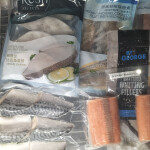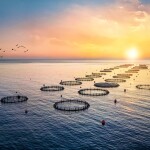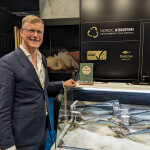This is part two of a two-part series on human rights abuses in the tuna industry. Part one explored the details of abuses uncovered by the report.
Human rights violations remain prevalent in the tuna industry, according to a recent report from BLOOM, a Paris, France-headquartered nonprofit.
The report, “Canned Brutality: Human rights abuses in the tuna industry,” details how many tuna products on European shelves stem from supply chains that employ workers subjected to verbal, physical, and sexual abuse, forced labor, and discrimination, among other rights infringements, with some of these products still touting their sustainability on labels and packaging.
To eliminate such abuse, BLOOM is calling for complete traceability in tuna supply chains, greater transparency in the E.U. carding system, the banning of all transshipment, and more effective punishment for non-compliant suppliers.
“We must become aware that this system is absolutely unsustainable in the long term, as it puts us into a vicious spiral in which an increasingly fragile and rare resource is hunted down more and more intensively in order to maintain current profit margins,” BLOOM Campaign Head Alessandro Manzotti told SeafoodSource. “[This] model takes us nowhere except toward the depletion of ecosystems and, eventually, of the fishing industry itself.”
According to Manzotti, the E.U. carding system currently lacks publicly accessible information on the rules guiding carding decisions and fails to sufficiently consider human rights violations during assessments. In order to be effective, the evaluation process needs to clearly integrate human rights violations and other practices that don’t comply with international labor and human rights standards into its criteria, according to Manzotti.
“Vessels fishing without a permit or in any way off the radar of the law have full freedom to use inhuman practices against fishermen. This is why it is important to ensure an effective fight against illegal and uncontrolled fishing practices, including effective bans on products from countries that have not implemented any sufficient system to put an end to these practices,” Manzotti said.
A few governments have been taking steps to address these abuses, albeit mostly in a reactive rather than a proactive manner, according to Manzotti.
“Unfortunately, actions by local governments to curb practices rarely happen out of spontaneous choice on the part of the governments themselves. This is why legal actions by NGOs to denounce the industry’s illegal practices … are so essential,” Manzotti said.
The European Commission is currently considering legislation banning products derived from forced labor from the E.U. market and requiring corporate sustainability due diligence.
Manzotti emphasized that the European carding system should also incorporate these reforms and should insist on compensation and redress of damages suffered by exploited workers of banned products.
The E.C. is also considering legislation similar to France’s existing duty of care law that would legally bind European companies to adhering to a higher traceability standard in their supply chains and ensuring no harmful practices are occurring at any level.
“These companies have the duty and the power to ensure that the products they market are not tainted by any violations,” Manzotti said. “The legislative trend is marked: Large companies will, in the near future, become increasingly responsible for the full social and environmental sustainability of the products they market. It is in their full interest to mobilize now to adapt their commercial policies.”
BLOOM has also called on the seafood industry to make reforms, including banning the use of deceptive recruitment tactics. And BLOOM has called for all seafood firms to publish reports on their entire supply chains, from shipment to point of sale.
“Forcing the industry to answer for its responsibilities is an important tool to fight against these abusive practices. Equally, states can be urged to take important measures to combat illegal fishing and human rights violations if they are sanctioned by their international trading partners,” Manzotti said.
BLOOM is also calling for a transshipment ban, saying the practice is inextricable from abusive practices. That goes farther than the requests of many other marine-focused NGOs, which have called for greater regulation of the practice.
“The combination of fish from different vessels through transshipment can prevent the tracing of fish to an individual ship,” BLOOM said. “This opacity makes it impossible for independent observers or for socially-conscious consumers to know whether the tuna sold by retailers is fair or bathed in human abuses and brutality.”
BLOOM is also encouraging the seafood industry to – at a minimum – adopt ...
Photo courtesy of Human Rights at Sea








